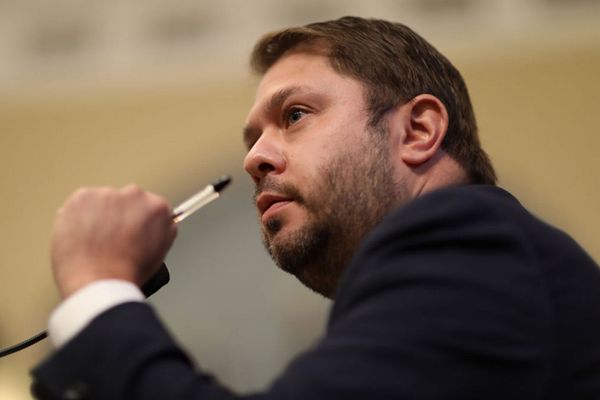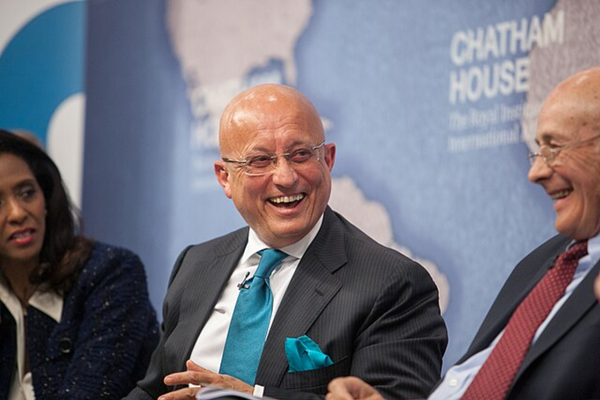NEW YORK — Jaws clenched, limbs firing and hearts on the line: That’s what the admirable cast of the gutsy “Paradise Square” is delivering at the Ethel Barrymore Theatre. They’re led by a blockbuster lead performance from Joaquina Kalukango, who makes her audience care about the struggling denizens of her character Nelly O’Brien’s titular saloon partly through the talents of the multitasking young composer Jason Howland, but mostly by her resolute force of will.
The visceral intensity of all the performances in this new musical — set in a bar in the Five Points neighborhood of Manhattan during the New York draft riots of 1863 — surely is indicative not just of the long, hard slog to beat back COVID-19 and wrestle an original musical to Broadway.
It also matches the themes of a show wrestling mightily with not just a notorious part of the history of New York City, but the ongoing racial acrimony still slapping at a fraught nation. Clearly, it’s part of a controversial veteran producer’s wish to finish a weighty musical triptych: Garth Drabinsky sees “Paradise Square” as a prequel to his “Showboat” and “Ragtime.”
But times have changed. The wheels of a dream are not so widely seen to be turning forward anymore. Musicals are newly fraught.
Clarified, intensified and inestimably improved since its less-cohesive Chicago tryout, “Paradise Square” focuses on how poor Irish immigrants shared a neighborhood with Black Americans, intermarrying, exchanging cultures and sharing music and dance. That halcyon moment, that potential vision of an ideal society, the musical suggests, is blown up when the Uptown bosses figure out that Black Americans and Irish represent a dangerous political coalition if allowed to remain aligned. A draft offers an opportunity to divide and conquer. The Irish start to see themselves as canon fodder in someone else’s war. A “little piece of Eden” is no more.
Long in gestation under Moises Kaufman’s modestly toned direction, “Paradise Square” cycled through several book writers: Larry Kirwan originated the project with the music of Stephen Foster, who actually lived in Five Points and whose songs pop up here. Craig Lucas followed and then Christina Anderson, whose name appears first on Broadway.
Howland stuck with the project, conducts from the pit and wrote four more fine numbers since the Chicago tryout. Lyrics are by Nathan Tysen and Masi Asare. Choreography is by Bill T. Jones, although he has not been up front and center as the show neared Broadway.
All of the writerly comings and goings can be felt at times as Allen Moyer’s turntable set spins, although far less than in Chicago, thanks to the unifying efforts of Howland’s growing suite of music, which is rich, earnest and emotionally potent.
The Irish contingent is led by the powerhouse Chilina Kennedy, whose character Annie is married to a Black reverend, movingly played by Nathaniel Stampley. When I saw the show at its tryout, it felt like there were two leads. Not any more. This is now Nelly’s story, as it should be, and it is to Kennedy’s credit that she anchors so potently but never pulls more than her share of focus.
“Paradise Square” still struggles with something at its core for which it feels unfair to blame the writers, since it flows from an American schism — is the very idea of a harmonic 1860s co-existence between Blacks and the Irish a false equivalency? Surely, you would not now see a scene that happened in the original tour of “Riverdance,” where a couple of cheery Black hoofers started watching cheery Irish steppe dancers and — presto! ― turned it into tap. Melting pot theories of entertainment are toast, at least in progressive circles.
But a consequence is that the show cannot decide whether Nelly’s bar (Nelly is married to an Irish solider, played by Matt Bogart) is paradise or not. Is the villain Uptown or the notion of American exceptionalism as embodied in “Ragtime?” Thus a kind of dramaturgical whiplash haunts the material, especially when a young impoverished Irishman, Owen Duigan (the sweet-footed A.J. Shively) fights a tour-de-force dance contest with Washington Henry (Sidney DuPont), an escaped slave on the run and a man trying to reunite with his lover Angelina (Gabrielle McClinton). The audience does not know for whom to cheer or even if they should be clapping their hands at all.
The show genuinely wants to be entertaining, of course, and much of the time it succeeds. It movingly celebrates the power of love and of families we make for ourselves. But it does not want to offer the traditional cathartic comfort of musicals; rather, it seeks to reflect all the pain these struggling characters feel. And thus “Paradise Square” will survive on Broadway only if audiences are willing to see that these artists are doing their best not just to reckon with the past, but to make the radical (for a musical) point that the present is not so much better.
“Paradise Square” is on board with changes that many on Broadway are hoping will happen with major big-budget musicals in the post-George Floyd era; as a pioneer, COVID and all, it plows a difficult but courageous road.
———







